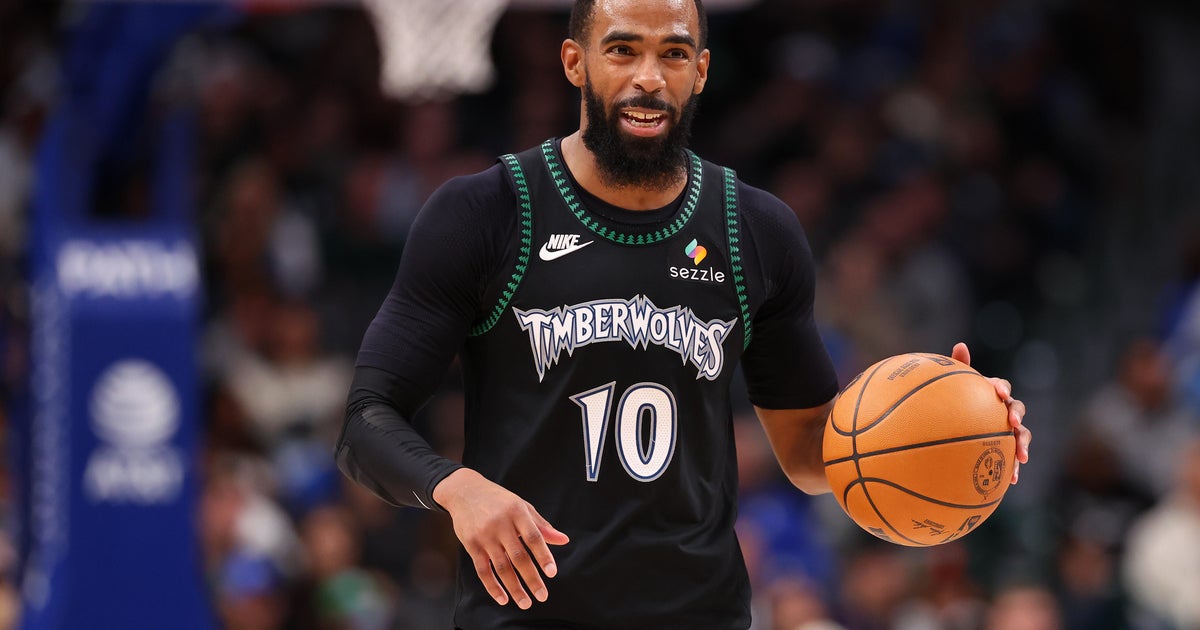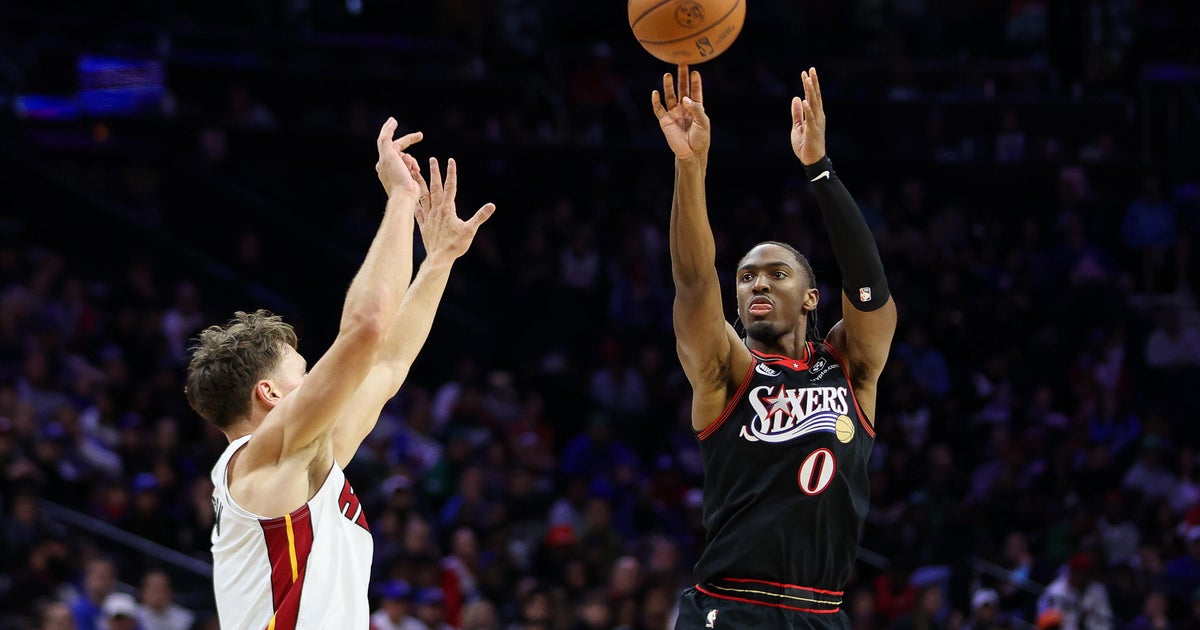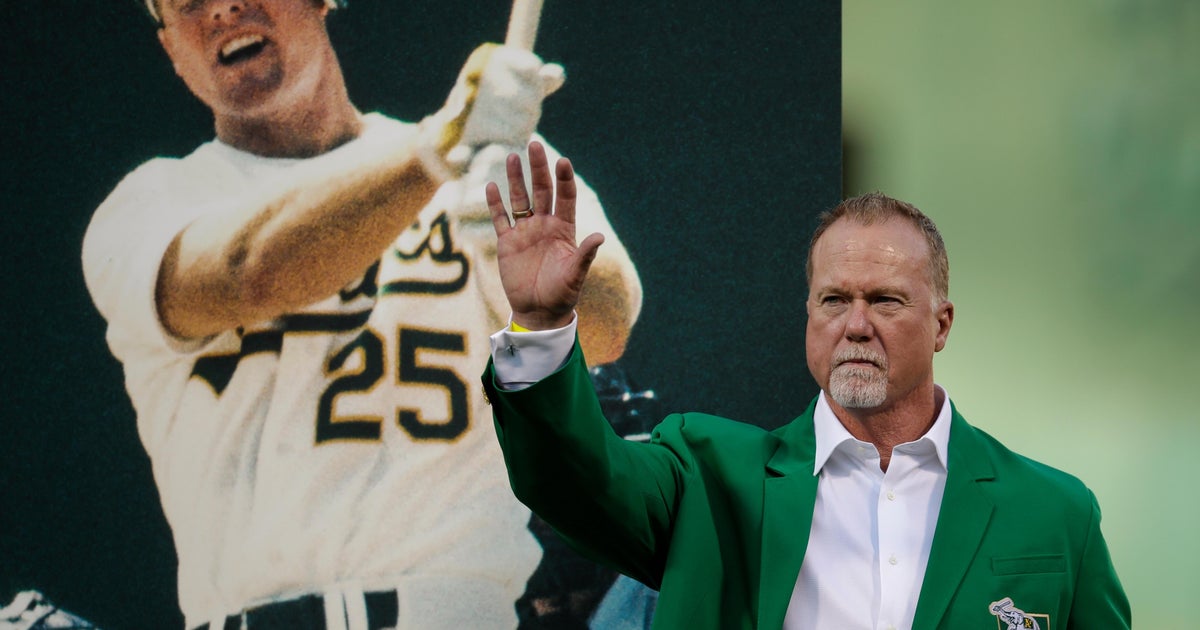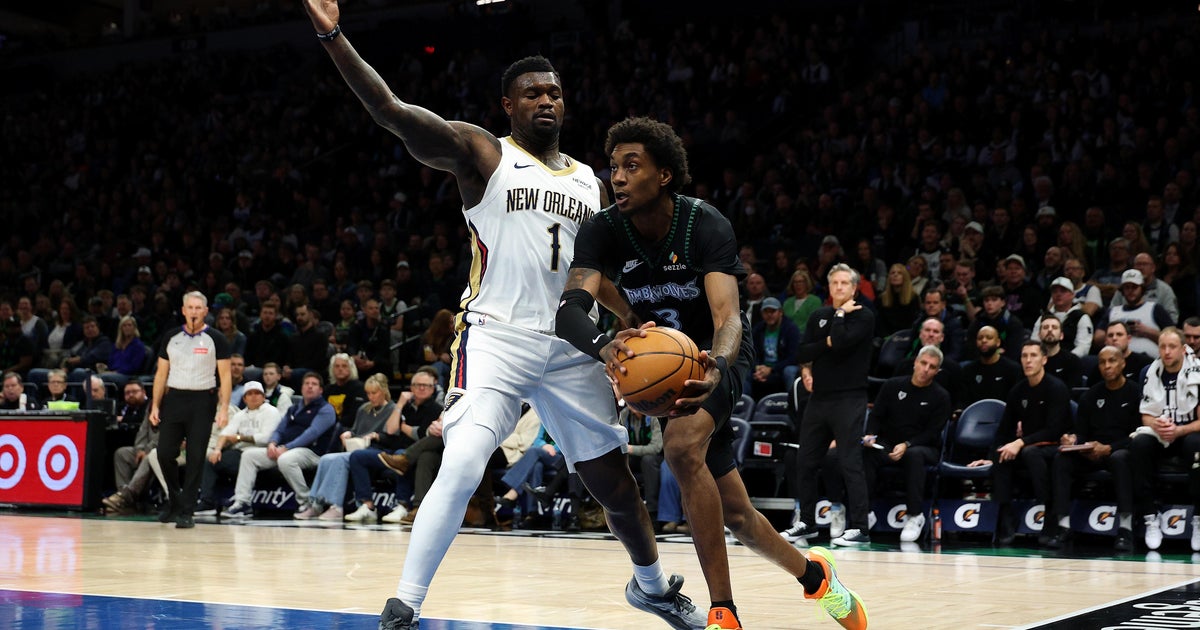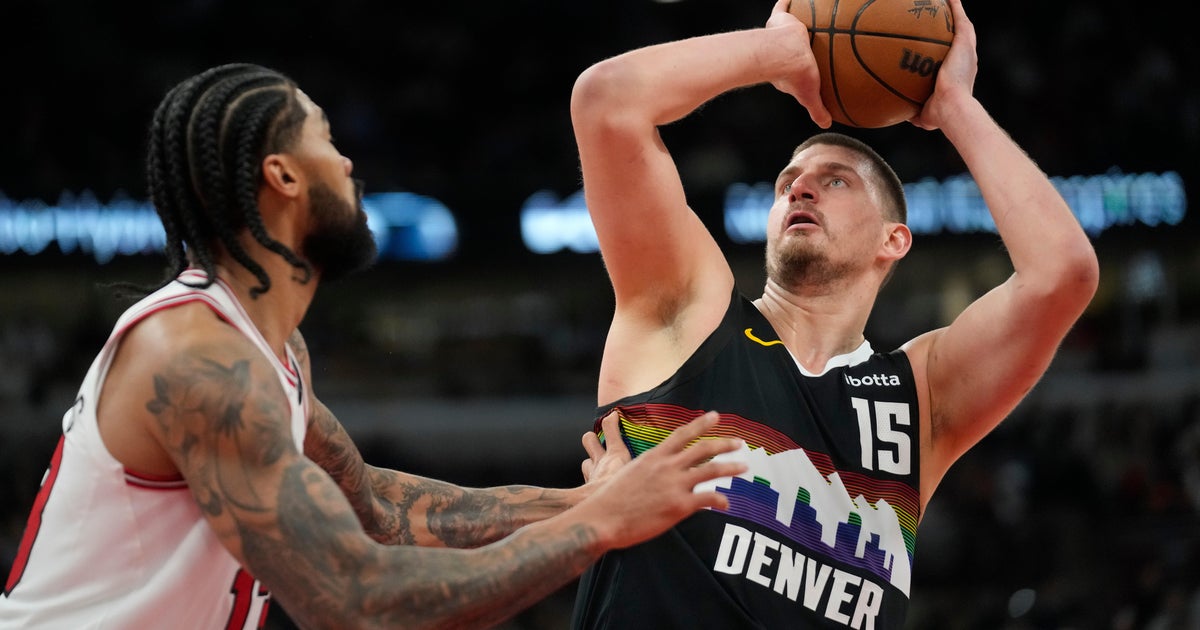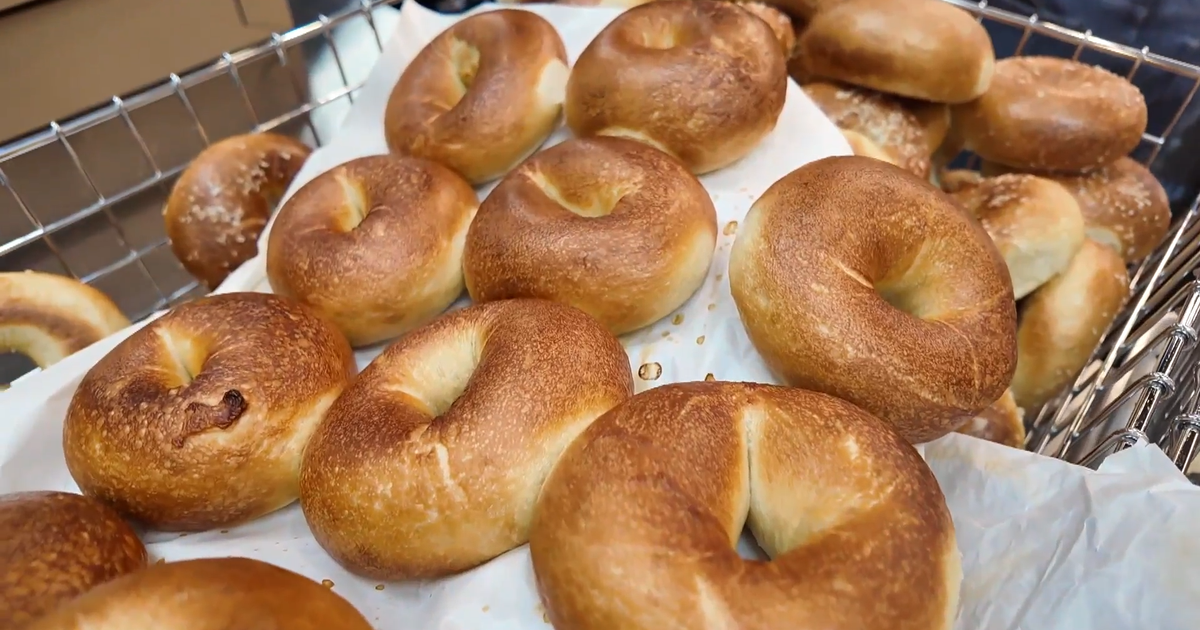Durkin: Evaluating The Bears Offense Position-By-Position
By Dan Durkin-
(CBS) For the first time in my adult life, I am optimistic about the Bears. Not cautious or guarded optimism, or optimism with an asterisk and footnote disclaimer. Legitimate optimism. And it scares the crap out of me.
Why am I optimistic? I will explain in my 2012 Chicago Bears positional preview.
This is my evaluation of how the Bears have - or haven't - improved their talent level per position group since 2011, and an overall assessment of each. First up is the offense.
(Note: *-denotes rookie.)
Quarterback: Jay Cutler, Jason Campbell, Josh McCown, Matt Blanchard*
There's no doubt that the Bears' failed back-up plan at quarterback in 2011 derailed a promising 7-3 start. All playoff hopes were shattered like the bones in Jay Cutler's right thumb, and the hand-off to Caleb Hanie was a botched, fumbling failure.
Think about this though, Cutler's broken thumb may have been a blessing in disguise. If Cutler didn't break his thumb, the Bears would've most likely made the playoffs and thus, there's a strong possibility that Jerry Angelo would still be calling the shots for the Bears today. Mike Martz may still have been the sacrificial lamb to appease the pitchfork and torch-wielding mob, and much more speculation could ensue about how the 2012 offseason could have unfolded. Alas, it didn't work out that way. Mercifully.
New general manager Phil Emery prioritized the backup quarterback position and quickly signed Jason Campbell, a former first-rounder and proven NFL signal caller with 71 career starts. Cutler is obviously the man for the Bears, and could be primed for a career year, but Campbell gives the Bears a legitimate backup plan. Rounding out the group is Josh McCown who showed late last season he is capable of running an NFL offense and deserves a spot as a No. 3.
The Bears are certainly better positioned at quarterback than they've been in years past, and should feel good about the position.
Talent level compared to 2011: Stronger
Overall assessment: Strength
Running Back: Matt Forte, Michael Bush, Kahlil Bell, Tyler Clutts, Armando Allen, Harvey Unga, Alvester Alexander*
Unless you've enjoyed a Rip Van Winkle-esque nap this offseason, you're well aware of the franchise tag/contract drama surrounding Bears running back Matt Forte. Forte took to the Twittersphere to express his displeasure towards the Bears organization, claiming to feel "disrespected". This sentiment of disrespect stemmed from the Bears signing running back Michael Bush to a 4-year $14M contract with $6M fully guaranteed.
At the risk of napalming this rotten equine corpse, I will say this much about the Forte contract situation. The franchise tag was collectively bargained, meaning the NFL Players Association and NFL owners mutually agreed to and signed off on this provision. Has Forte out-produced his rookie contract? Absolutely. He's not unique in that regard.
I understand the franchise tag is guaranteed money for only one year, and Forte is seeking long-term security, but the moment he signs the tender he gets $7.7M which works out to roughly an 800% raise (base salary of $550K, signing bonus of $383K). Disrespected?
Forte plays a "chew 'em up and spit 'em out" disposable position in the NFL where your job description is in essence to have 35 car accidents every weekend. Smart teams pay for your future projections, silly teams (see the Carolina Panthers deal for DeAngelo Williams) overpay running backs past their prime and skew the market.
There's no doubt the Bears are a better team with Forte in the backfield. But the signing of Bush was another shrewd maneuver by Emery. By signing Bush, Emery hedged his bets for 2012, but also strengthened the position for the following three seasons. Bush is a proven NFL running back who could carry the load as a lead back, but will be even better in a timeshare situation. Bush should pay immediate dividends in short yardage and goal-line situations, areas the Bears have struggled with for years.
Rounding out the group is Kahlil Bell, who showed some flashes last year when his number was called. However, Bell's propensity for fumbling - three fumbles in 49 touches in his two starts - which unless corrected, will prevent him from ever being the main ball carrier in an NFL backfield.
The Bears appear to be flush at the running back position in 2012.
Talent level compared to 2011: Stronger
Overall assessment: Strength
Wide Receiver: Brandon Marshall, Earl Bennett, Johnny Knox (injured), Devin Hester, Alshon Jeffery*, Eric Weems, Devin Thomas, Dane Sanzenbacher, Terriun Crump*, Brittan Golden*, Chris Summers*
No position group underwent a bigger makeover this offseason than wide receiver. The Bears seemingly moved out of their studio apartment and into a lakefront penthouse. One minute into the 2012 league year - for the bargain price of two third-round draft picks - Emery added a legitimate No. 1 wide receiver, the mercurial yet undeniably talented Brandon Marshall. I wonder if Emery went with the more traditional silent film era villain mask, or a Point Break-style Nixon mask when negotiating that deal with the Dolphins?
The Bears then double dipped in the draft, trading up in the second-round to select Alshon Jeffery. Emery said in his opening presser that the NFL is a big man's game, and Marshall and Jeffery certainly fit that mold. It is tantalizing to think about red zone jump-ball opportunities with these two. Recall that just a year ago, Cutler was looking to undrafted free-agent rookie Dane Sanzenbacher on third downs and in the red zone. What a difference a year has made.
Throw in free-agent signees (which appear to be more special teams oriented acquisitions) Eric Weems and Devin Thomas, and the level of competition at the top and bottom of the receiver depth chart has increased.
No Bears offseason would be complete without rhetoric about Devin Hester being the greatest practice field receiver in the NFL, who is primed for a breakout season. It reached an all-time hyperbolic high when Marshall said Hester might have a better season than Marshall himself. If that comes true, something will have gone terribly, terribly wrong.
Years - bordering on decades - of neglect and denial of the talent dearth at the wide receiver left Bears fans jaded, so it was refreshing to see Emery prioritize the wide receiver position. While the improvements are obvious, this group still has to prove itself on the field. With Johnny Knox out at least six games (more likely the entire season), a No. 3 option must emerge from this group.
Talent level compared to 2011: Stronger
Overall assessment: Neutral
Tight End: Kellen Davis, Matt Spaeth, Evan Rodriguez*, Kyle Adams, Draylen Ross, Brandon Venson*
Former offensive coordinator Mike Martz is largely to blame for draining the water out of the Bears tight end talent pool. First, it was throwing $6.1M of guaranteed money at Brandon "Shamu" Manumaleuna. For those counting at home, that contract worked out to $1.22M per reception and $6.1M per touchdown. Then, it was signing Matt Spaeth (who was a very solid blocker in 2011). Finally, it was trading Greg Olsen to the Carolina Panthers for a third-round pick, which was subsequently used in the Brandon Marshall trade.
These moves showed Martz's control over the roster, as he prefers the tight end to play with his hand in the dirt and block the 6-technique. In theory, this was to give quarterbacks more protection as they waited for slow-developing route combinations on 7-step drops. In the end, it didn't work out, as the Bears still gave up a ridiculous amount of sacks.
The Bears spent a fourth-round pick on Evan Rodriguez out of Temple, who could bring some versatility to the position. Rodriquez was an F-back in college (fullback in an off-set I formation), but could be used as an H-back on the wing, in the slot, or as an in-line tight end. However, it's hard to imagine him making major contributions in 2012.
The Bears hope that Kellen Davis breaks out, something they've been waiting on for years. Davis signed a two-year extension and is the Bears best combination of blocker and receiver at the position. But when you look at the tight end renaissance going on in the NFL, it makes you realize how ordinary the Bears tight ends are.
Talent level compared to 2011: Same
Overall Assessment: Weakness
Offensive Line: Roberto Garza, Chris Spencer, Lance Louis, Chilo Rachal, Edwin Williams, Ricky Henry, Nick Pieschel*, Chris Williams, Gabe Carimi, J' Marcus Webb, James Brown*, Cory Brandon, A.J. Greene*, Tyler Hendrickson*
For the first time in a decade, I feel like the current Bears GM is looking at the same roster I am, with one glaring exception: the offensive line. I've already acknowledged that it would be impossible for Emery to address all needs in one offseason, I just (incorrectly) assumed the offensive line would be a higher priority.
Defenders of the Bears offensive line - yes, they do exist - are quick to retort with two counter arguments: 1) the line wasn't that bad when Cutler was playing, and 2) Mike Martz is gone. Number one is flimsy, as you should never credit the offensive line for Cutler's athleticism. Number two has a little merit, as removing Martz and his odd playcalling may in fact put players in better situations, but it doesn't suddenly make them more talented, which is the real issue at hand.
The Bears did very little to improve the competition across the line - specifically at tackle - and in a division featuring premier pass rushers that is hard to reconcile. Bears brass is quick to point out they're getting two first-rounders back in Chris Williams and Gabe Carimi. Williams will compete with incumbent blob J'Marcus Webb for the right to protect Cutler's blindside. Nevermind the fact that Williams has already failed as a left tackle in the NFL, and Webb? He was the NFL's worst left tackle in 2011 and the NFL's worst right tackle in 2010. The Bears' faith in Webb baffles me.
Carimi's rookie season lasted all of five quarters and I've reviewed every NFL snap he took. Carimi really struggled in pass protection (against the Falcons Kroy Bierman mind you), and looked every bit like a rookie. Then offensive line coach, now offensive coordinator Mike Tice claimed Carimi was the Bears best offensive lineman. Maybe that was true. It would certainly help explain why they were so bad in 2011.
The interior of the line has enough depth to make for a decent competition at guard. I was impressed at times by the play of Williams, Lance Louis, and Chris Spencer last year, especially on pulls and lead plays. The Bears signed guard Chilo Rachal in free-agency, who is a solid run blocker, but an iffy pass protector. Roberto Garza returns for his second year at center, and is the veteran presence and anchor on the line.
I have a suspicion that some of the decisions the Bears made - or didn't make - about the offensive line in March and April will come back to haunt them in October and November.
Talent level compared to 2011: Same
Overall Position Grade: Weakness
The Bears made some long overdue philosophical changes this past offseason. They fired and hired a new general manager, and they let their last offensive coordinator "retire" although it appears he did that several years earlier. Additionally, the Bears infused their roster with quality talent at some offensive skill positions.
Due to free agency and new salary cap rules, every team in the NFL has flaws. The Bears are no exception to this rule. What separates good teams from bad teams is talent, but what separates great teams from good teams is coaching. Specifically, coaching efficiently to mask your own flaws and exploit those of your opponent.
Mike Tice, new quarterbacks coach Jeremy Bates, and first time offensive line coach Tim Holt face some big challenges in 2012. They will coordinate the offense of a team with an at times dominant defense, whose window of opportunity is closing rapidly. There are new toys to work with, but in one offseason, can they install a new system that will maximize talent and minimize mistakes?
The 2012 Bears will feature the most talented quarterback/running back/wide receiver trio in my lifetime. But will the offensive line open holes in the running game, and provide sturdy pockets for Cutler to throw from? You can have all the game-changing wide receivers and franchise tag worthy running backs you want, but unless the big guys up front do their job, it's all for naught.
Dan Durkin joined The Score's columnist community after finishing runner-up in the 2011 Pepsi Max Score Search. He is a graduate of the University of Illinois where he was a member of the men's football team (despite his best efforts to join the women's team). Dan is a longtime Scorehead, known as Dan in Wicker Park - even though he no longer resides in Wicker Park - who will be sharing NFL analysis and opinions. You can follow Dan on Twitter @djdurkin. To read more of Dan's blogs click here.
